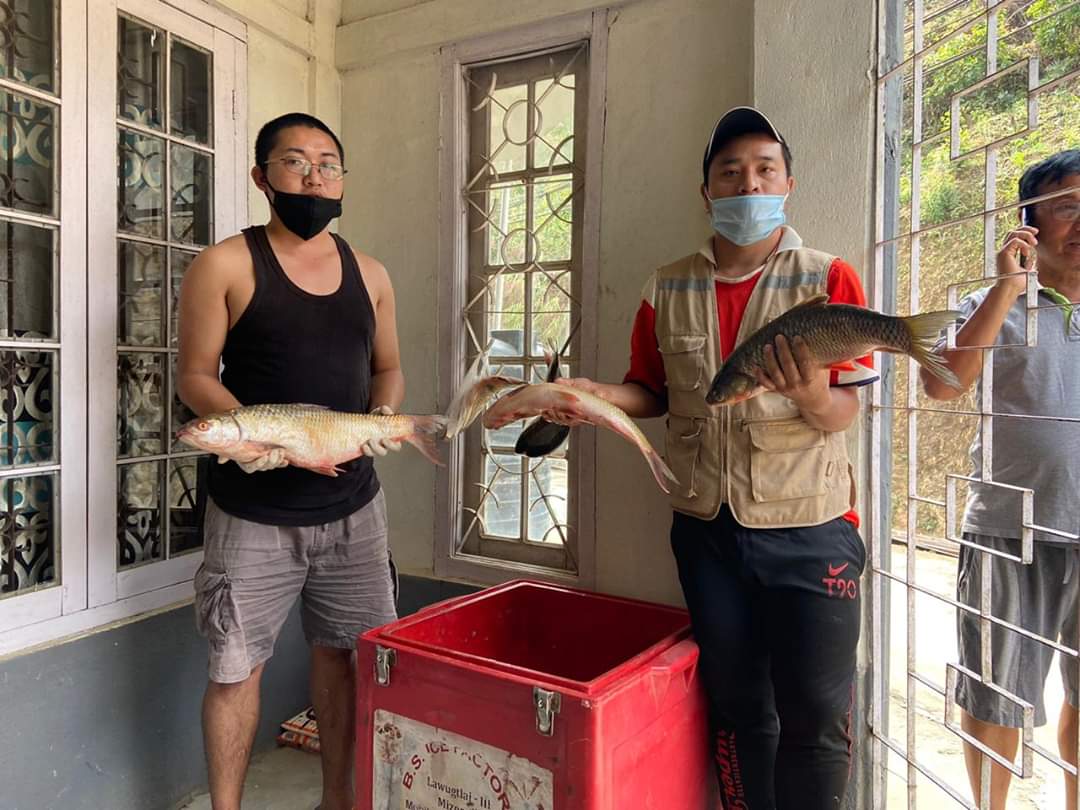
How local youths are ferrying essentials to locked Mizo villages

Ngentiang, a small Mizo village near the Indo-Myanmar border, has put up a wooden gate at its entrance with a notice—no one is allowed in or out. While one might wonder how the villagers would get provisions if they can’t venture out, volunteers of the Young Mizo Association (YMA) have come to their aid by taking up the responsibility of delivering essentials to residents.
In a similar way, task forces of local youth have stepped in to ensure the supply of essentials in the villages of Mizoram’s Champhai district.
Similar task forces are being set up in all localities and villages across Mizoram under the aegis of the Young Mizo Association (YMA) to maintain the farm-to-plate supply chain of grains,vegetables, meat, fish and other essentials. Sources say, due to the immense popularity of YMA in Mizo society, the government has urged the organisation to work with it to ensure smooth implementation of the lockdown and ensure supplies to households.
Modus operandi – disciplined and hassle-free
Volunteers of YMA collect the grains from the food and civil supplies department, vegetables from district-level cooperative farming societies and the horticulture department and meats from butchers, and then carry them in mini-trucks to localities and villages for distribution.
Distributions are made once in a week in each locality.
“In a pre-designated place the YMA task force comes with the essentials once in a week. We queue up in front of the truck, maintaining a safe distance of around two metres from each other by standing on marked square boxes,” said Hmeri of Khatla locality.
Related news: How villages in northeast are self-enforcing lockdown
“Generally we can buy the goods as per our basic requirements at a fixed price. But as and when there is a shortage of supply, the task force rations the supply as per the size of a family,” she added.
Apart from local residents, the YMA is also supplying free food to 940 stranded migrant workers in the state as per the government’s request.
During the lockdown period— enforced in the state from March 23, a day ahead of the nationwide lockdown announced by prime minister Narendra Modi— shops in the state are allowed to open only once in a week. The pharmacies are allowed to open on alternate days as per fixed rosters for every locality.
Working in tandem with government
Apart from distribution of essential commodities, the task force also mobilises supply of masks, protective suits and other safety items for health workers by encouraging local residents to prepare them.
The state’s planning and programme implementation department is currently organising an online PPE (personal protective equipment) challenge to rope in more people to make protective gears.
“Our volunteers have emerged as an important cog in the government’s effort to combat the COVID-19 outbreak,” said Vanlalruata, Central YMA president.
The YMA volunteers are roped in by the government for distribution of essentials and smooth enforcement of lockdown considering the association’s vast network and important position it holds in Mizo society, said a government official seeking anonymity.
Related news: Combo packs of fruits, veggies reach doorsteps in Chennai
“The task force has become the main ground-level machinery for the government to implement measures it has taken to alleviate the problems faced by people due to the lockdown,” said B Lalmalsawma, a member of the task force.
The government provides necessary resources to the task force, which is also getting generous donations from the public.
Two little sisters – five-year-old Angel Lalruatfeli Rokhum and 10-year-old VL Muanpuii Rokum recently made a contribution of ₹609 and ₹580 respectively from their piggy banks to its coffer, a gesture widely appreciated in the state.
YMA, an asset to Mizo society
“The YMA is more than an NGO. It is an integral part of the Mizo society that works in the community round the year. For instance, if any person dies in a village or a locality, it’s the local YMA unit that organises funerals,” said Zodin Sanga, a senior journalist explaining the association’s role in a nutshell.
The organisation was formed in June 1935 considering every Mizo, irrespective of their religion or denomination, as a member.
The organisation was the brainchild of the British Christian missionaries who felt the need to bring the entire community under one platform.
Related news: Coronavirus sparks xenophobia against Chinese, northeast residents
The idea is based on the traditional community life of Mizo society where community activities were preferred over individualism, points out B Lalzarliana, who teaches sociology in Mizoram University.

